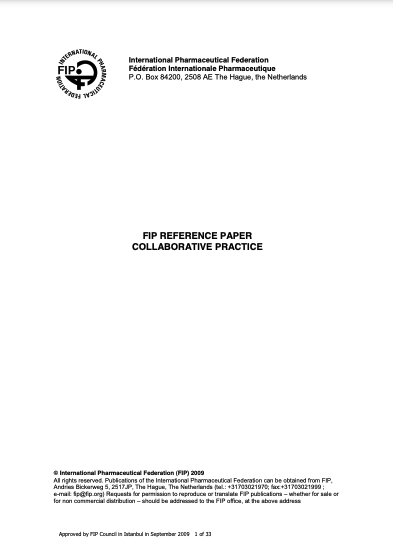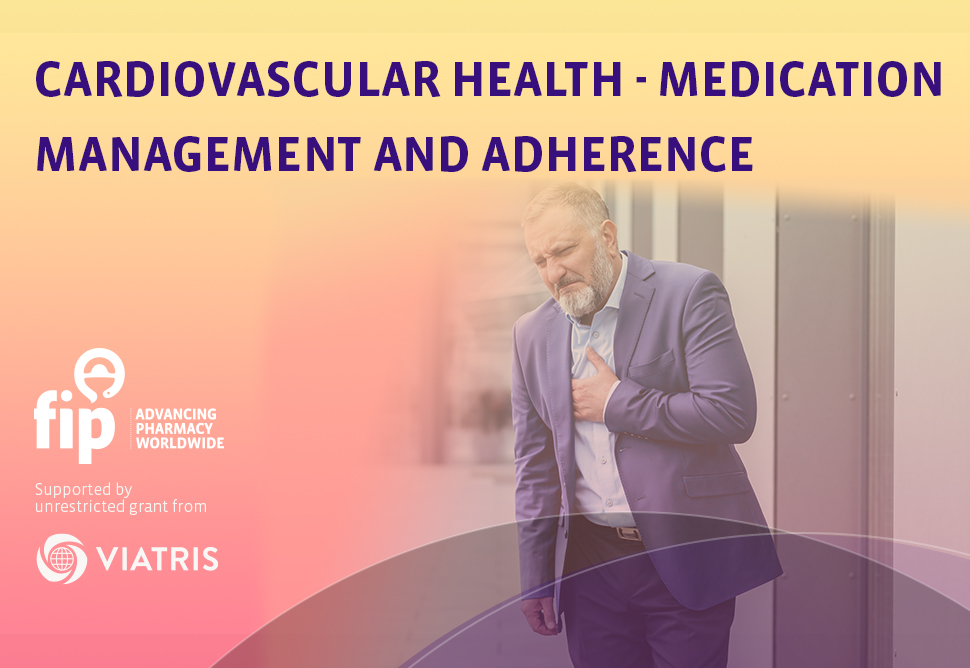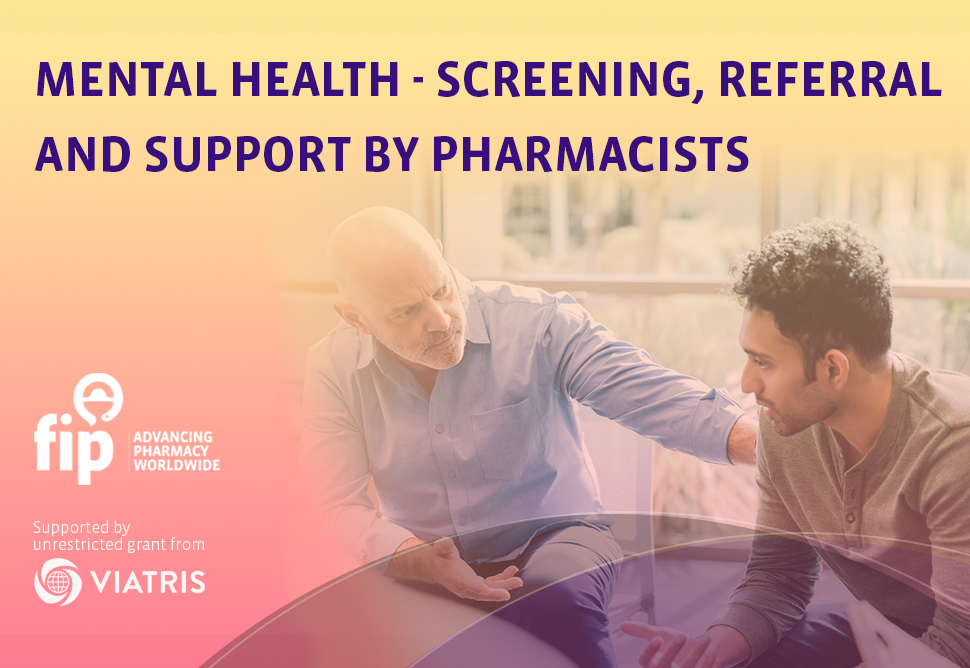Advancing Integrated Services
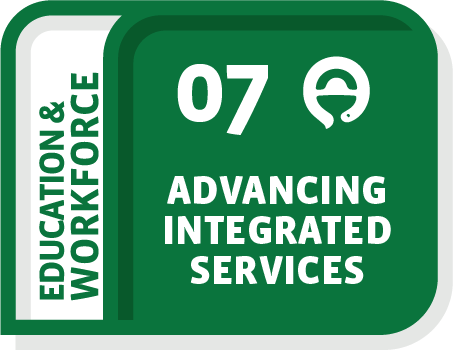
FIP Development Goal 7 Education & Workforce Element
Globally, we will have:
A patient-centred and integrated health services foundation for workforce development, relevant to social determinants
of health and needs-based approaches to workforce development.
Mechanisms
- Systematic development of education and training activities based on local healthcare systems, their capacity and funding.
- Evidence of systematic development policies and strategies for the strengthening and transforming pharmaceutical workforce education and the systematic training of trainers and educators.
- Education providers must ensure, by the provision of evidence-based approaches, that lecturers, teachers and trainers are themselves appropriately trained for capability and competency.
- Enable the pharmaceutical workforce and key stakeholders to promote health equity through actions related to social determinants of health.
FIP Development Goal 7 Practice Element
Globally, we will have:
A people-centred and integrated health care provision that is based on an interprofessional and cross- setting seamless continuum including pharmacist-delivered professional services.
Mechanisms
- Define clear processes and procedures for developing and delivering integrated, needs-based services in practice and across all health care settings.
- Develop and implement systems for the design, delivery and evaluation of such services in primary, secondary, tertiary, and urgent and emergency care services.
- Recognise that people-centred integrated quality health services are the foundation for optimal clinical, humanistic, economic and sustainable health care outcomes.
- Clearly identify patient and population needs that support the development and delivery of pharmaceutical services that are relevant to health needs.
- Ensure capacity to deliver interprofessional integrated services during humanitarian crises, disasters and emergency situations.
- Ensure collaborative working with others within the pharmacy team and other health care providers especially through transitions of care and lifespan care.
- Implement quality measures of all outcomes of health care, from an integrated, holistic perspective, which take into account the Person’s Journey.

FIP Development Goal 7 Science Element
Globally, we will have:
Scientific strategies to evaluate expanded professional pharmacy services and programmes, including translational and reverse-translational research.
Mechanisms
- Create evidence of team-based, interdisciplinary science.
- Establish a forum to facilitate translational and reverse translational research, with the goal to expand pharmaceutical services and drive innovative research.
- Foster collaboration between pharmaceutical scientists and pharmacists to evaluate advanced services and help document the value added to healthcare systems.
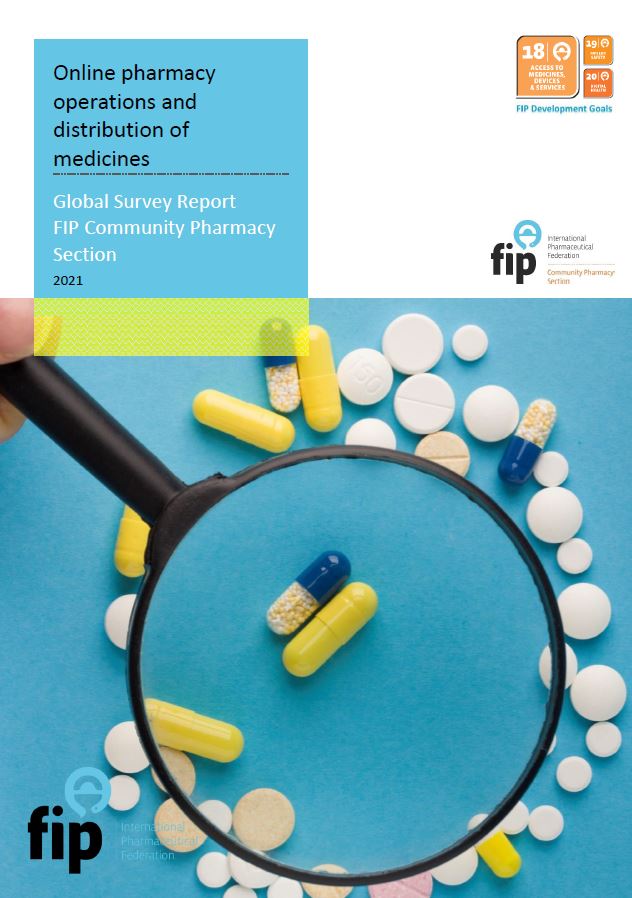
Online pharmacy operations and distribution of medicines: Global Survey Report - FIP Community Pharmacy Section (2021)
Read Publication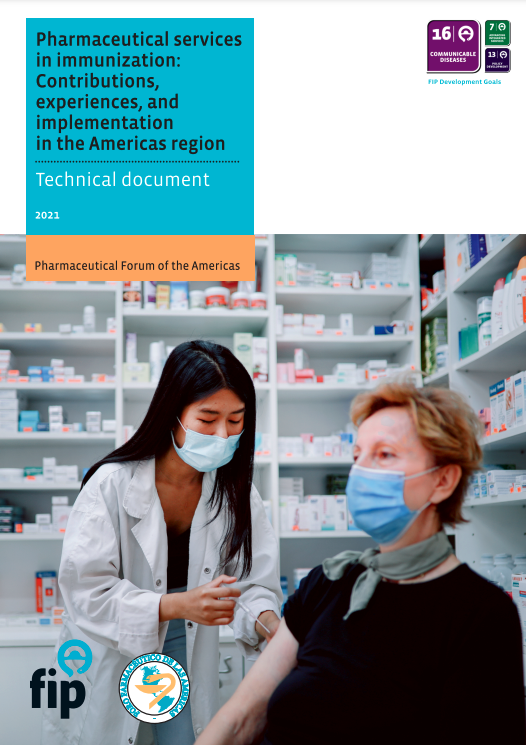
Pharmaceutical services in immunization: Contributions, experiences, and implementation in the Americas region - Technical document (2021)
Read Publication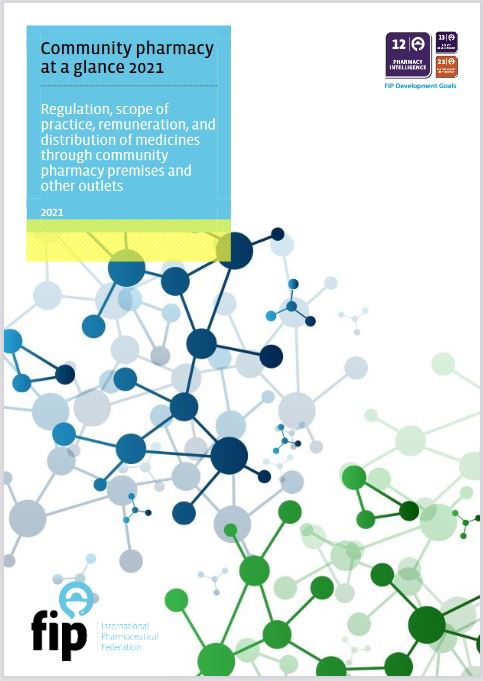
Community Pharmacy at a Glance 2021: Regulation, scope of practice, remuneration, and distribution of medicines through community pharmacy premises and other outlets (2021)
Read Publication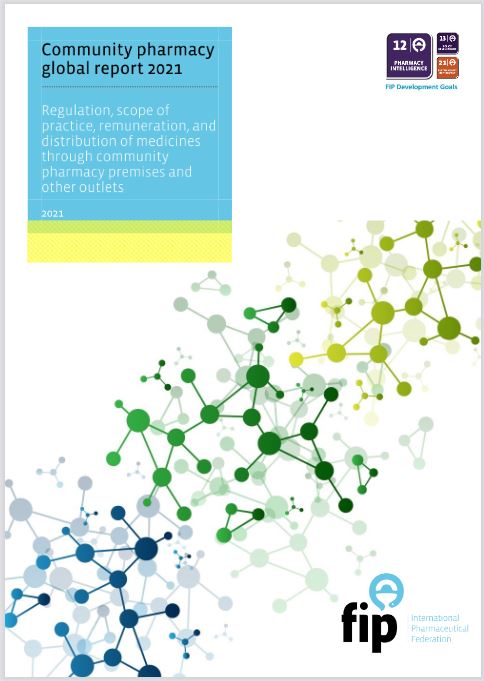
Community Pharmacy Global Report 2021: Regulation, scope of practice, remuneration, and distribution of medicines through community pharmacy premises and other outlets (2021)
Read Publication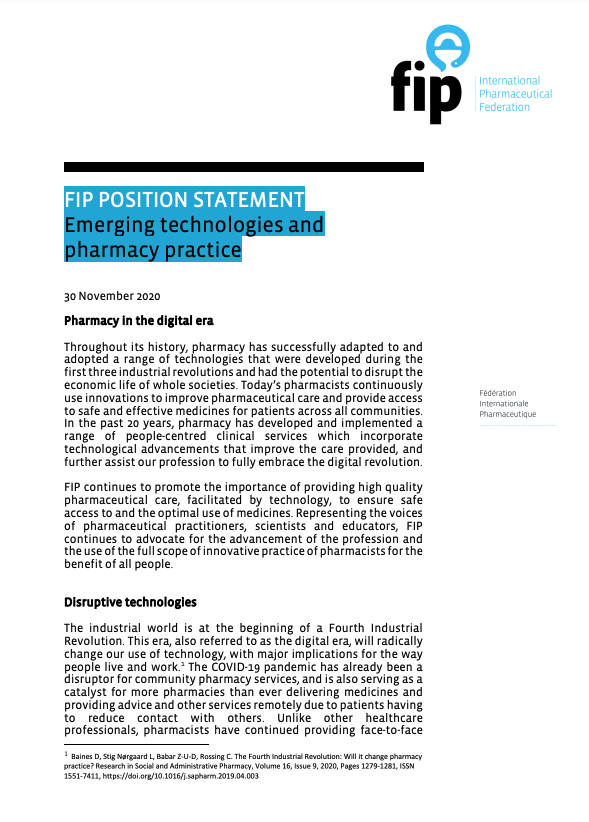
FIP Position Statement: Emerging technologies and pharmacy practice (2020)
Read more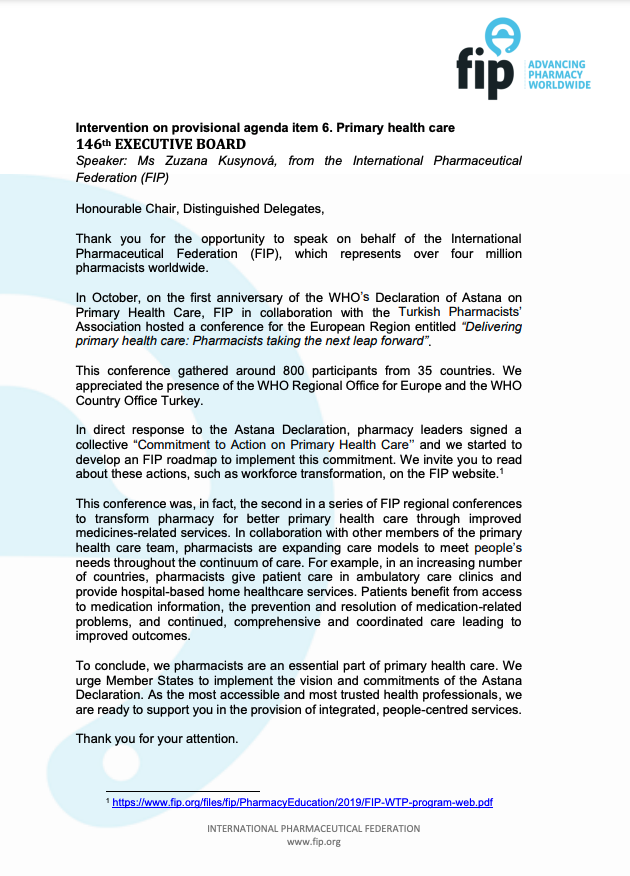
146th EXECUTIVE BOARD: Intervention on provisional agenda item 6. Primary health care (2020)
Read more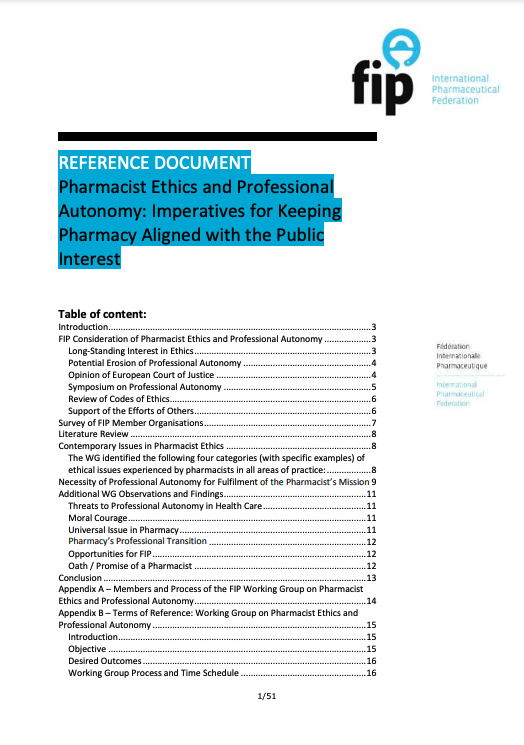
Pharmacist Ethics and Professional Autonomy: Imperatives for Keeping Pharmacy Aligned with the Public Interest (2014)
Read more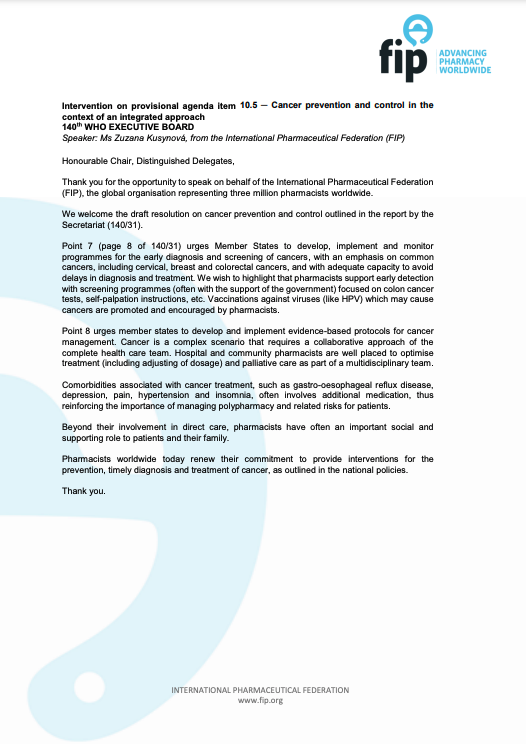
140th WHO Executive Board: Intervention on provisional agenda item 10.5 ─ Cancer prevention and control in the context of an integrated approach (2017)
Read more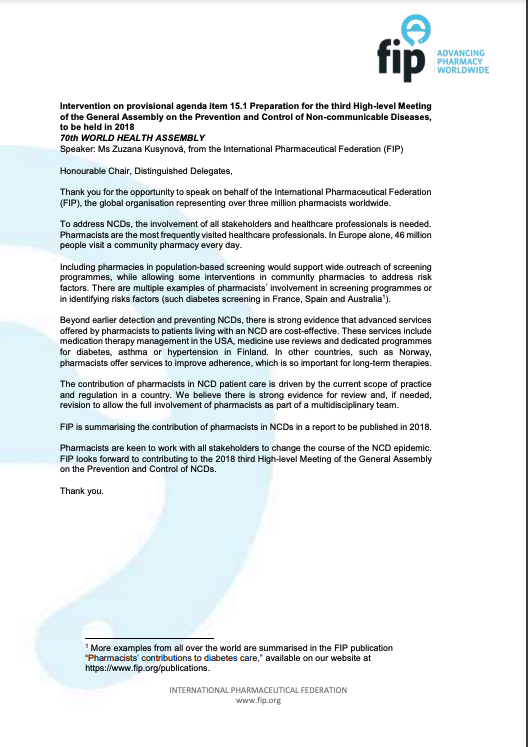
70th World Health Assembly: Intervention on provisional agenda item 15.1 - Preparation for the third High-level Meeting of the General Assembly on the Prevention and Control of Non-communicable Diseases, to be held in 2018 (2017)
Read more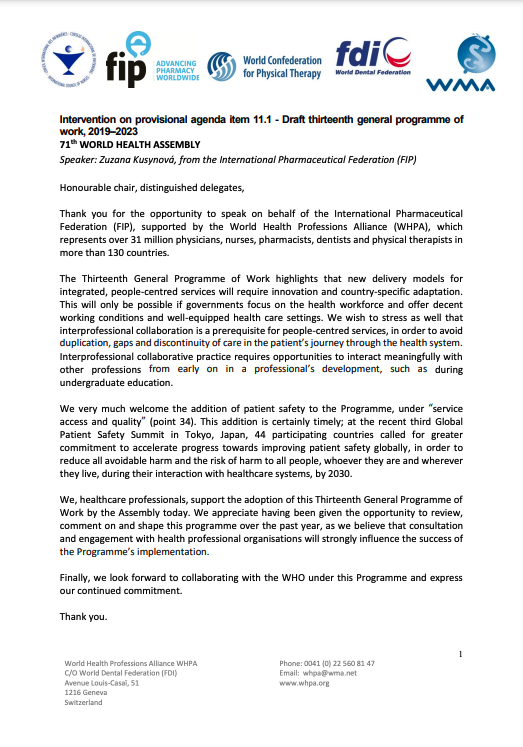
71st World Health Assembly: Intervention on provisional agenda item 11.1 - Draft thirteenth general programme of work, 2019–2023 (2018)
Read more
Promoting and communicating the value of self-care: Self-care does not mean no care
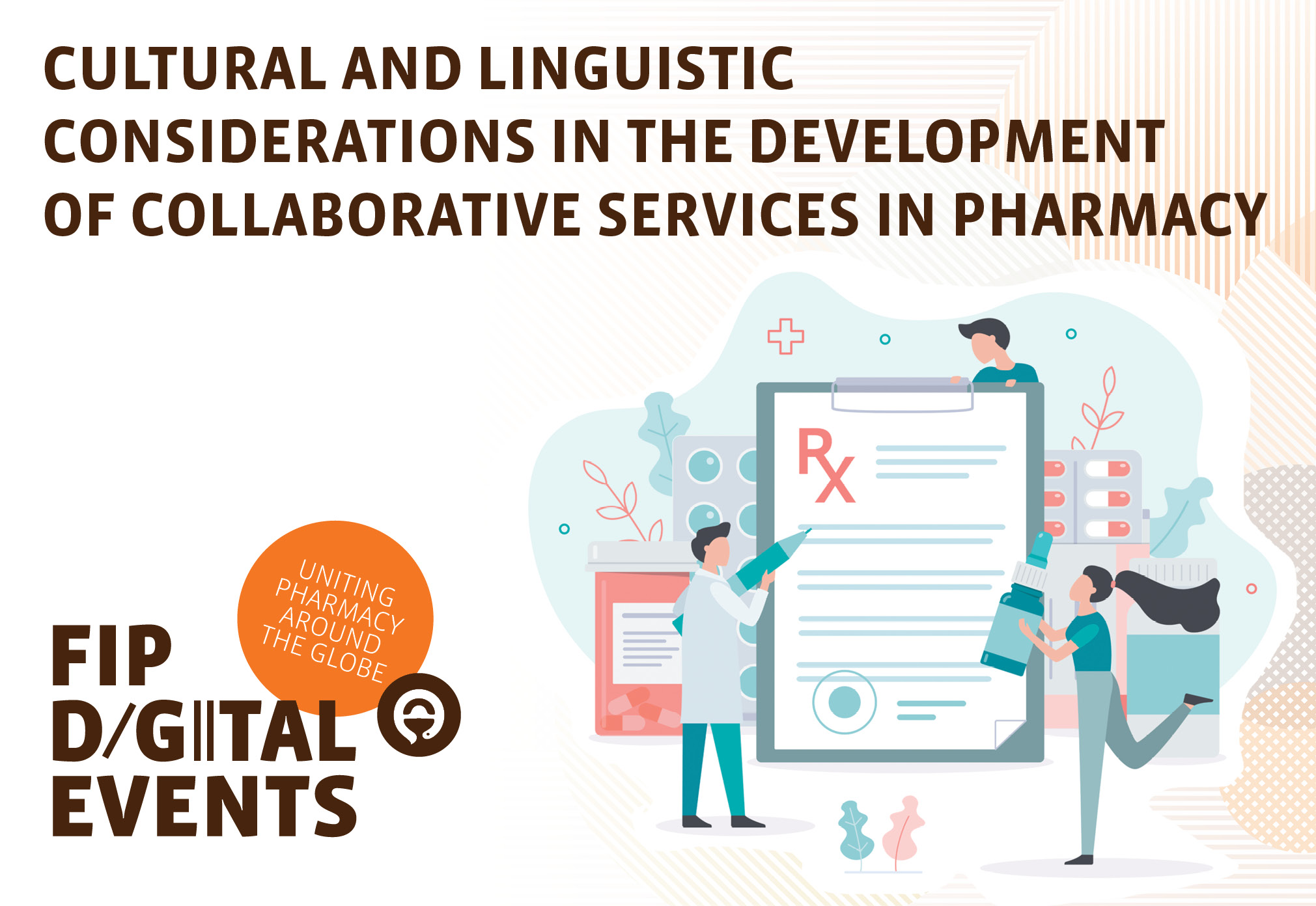
Cultural and Linguistic Considerations in the Development of Collaborative Services in Pharmacy
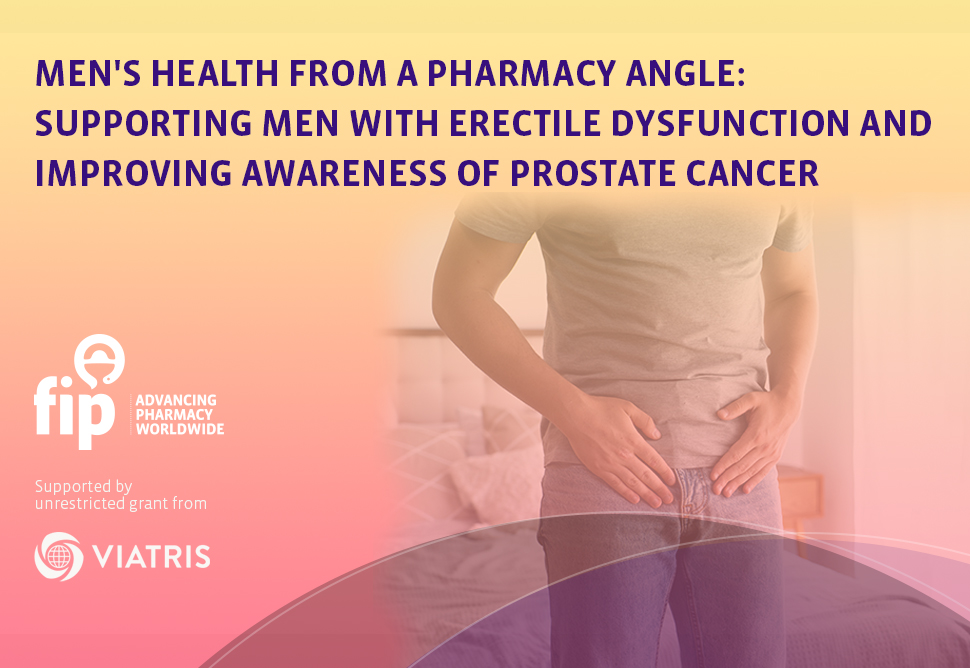
Men's health from a pharmacy angle: Supporting men with erectile dysfunction and improving awareness of prostate cancer
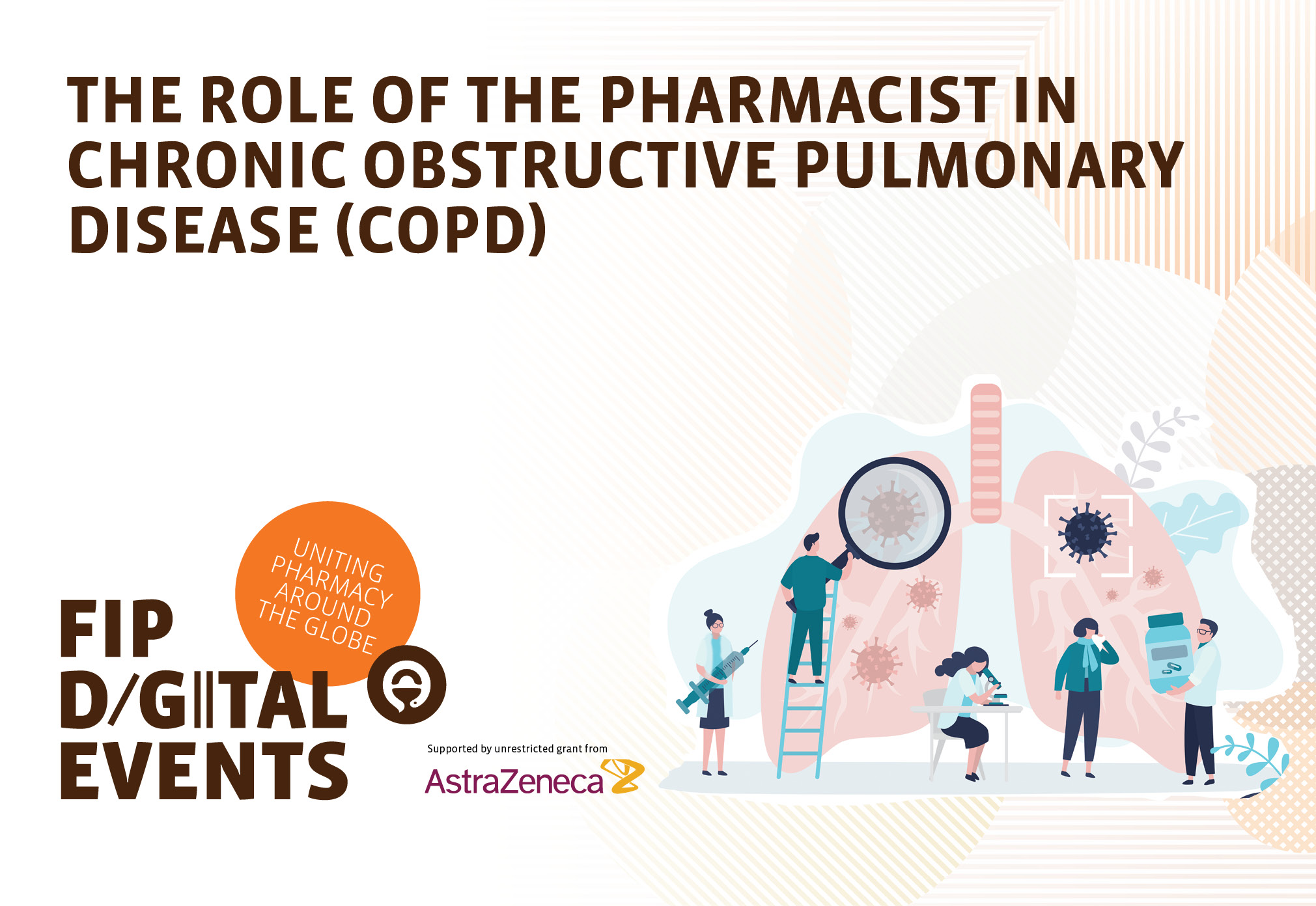
The role of the pharmacist in Chronic obstructive pulmonary disease (COPD)
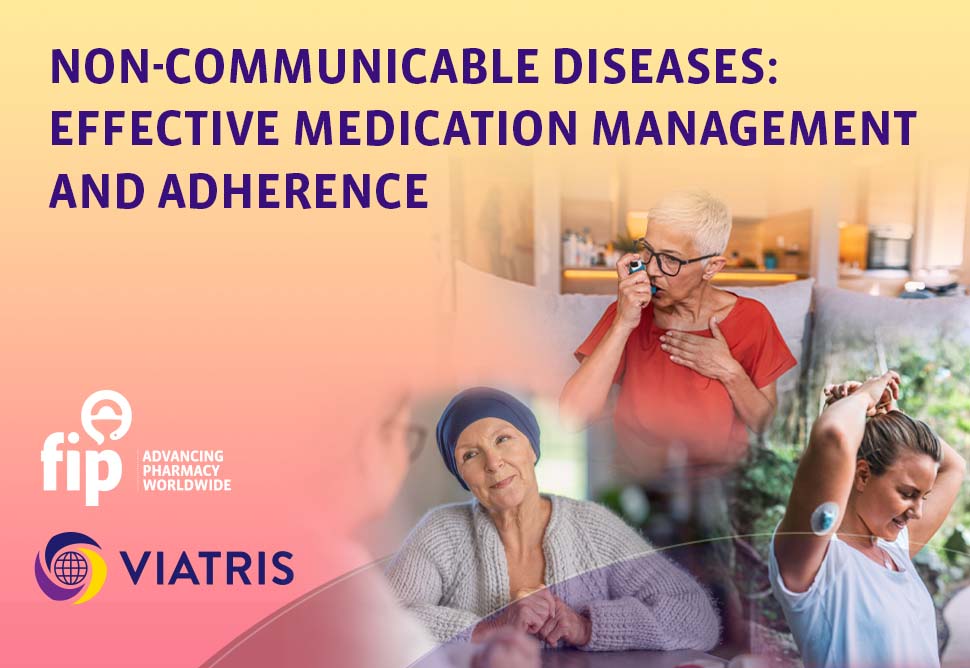
Non-communicable diseases: Effective medication management and adherence
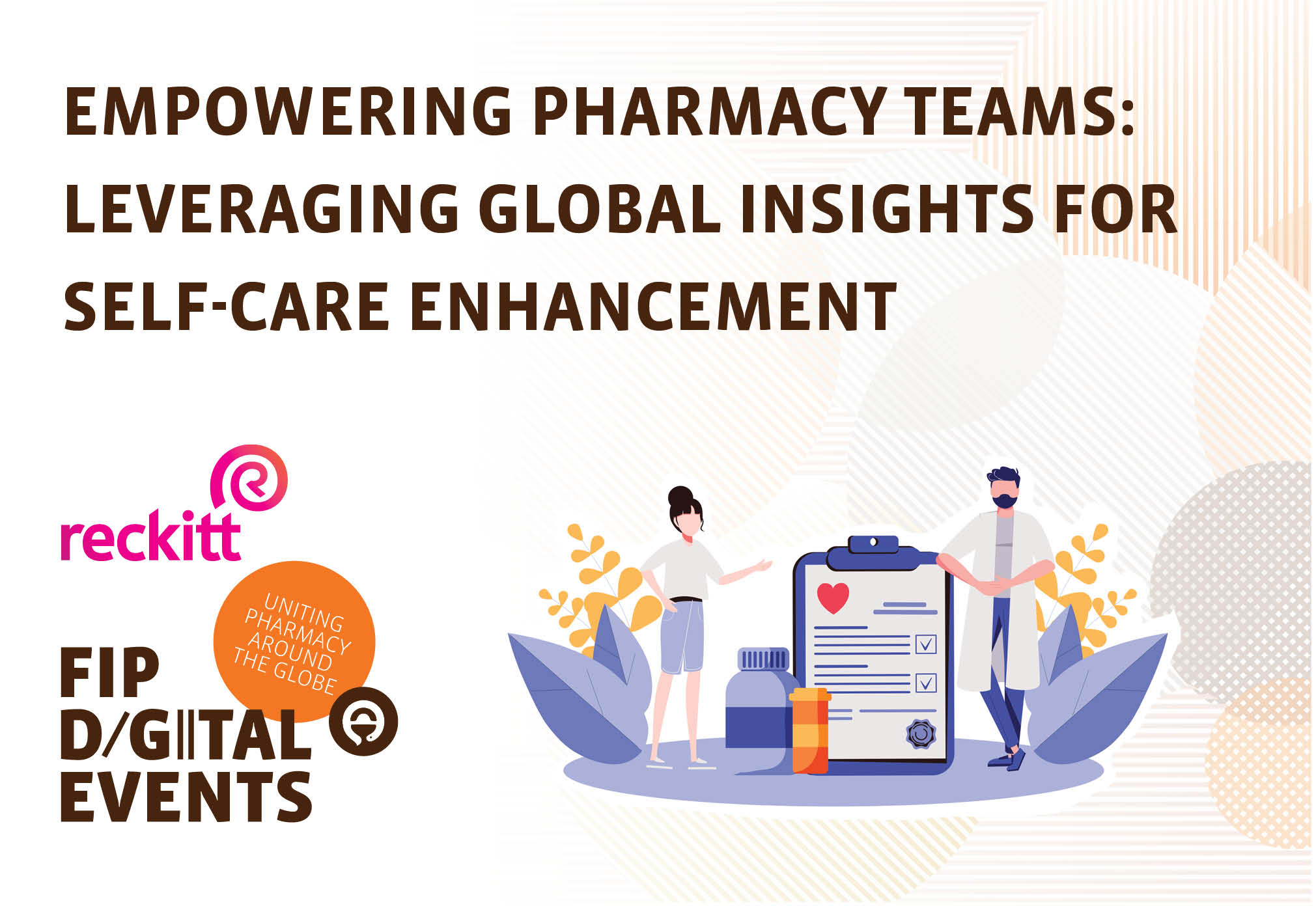
Empowering Pharmacy Teams: Leveraging Global Insights for Self-Care Enhancement
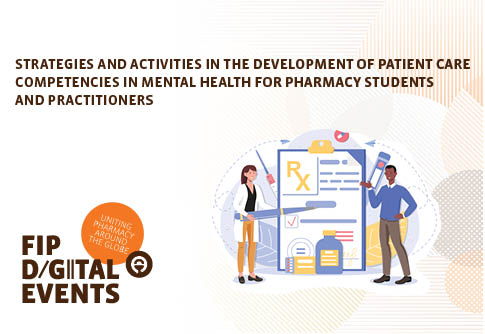
Strategies and activities in the development of patient care competencies in mental health for pharmacy students and practitioners
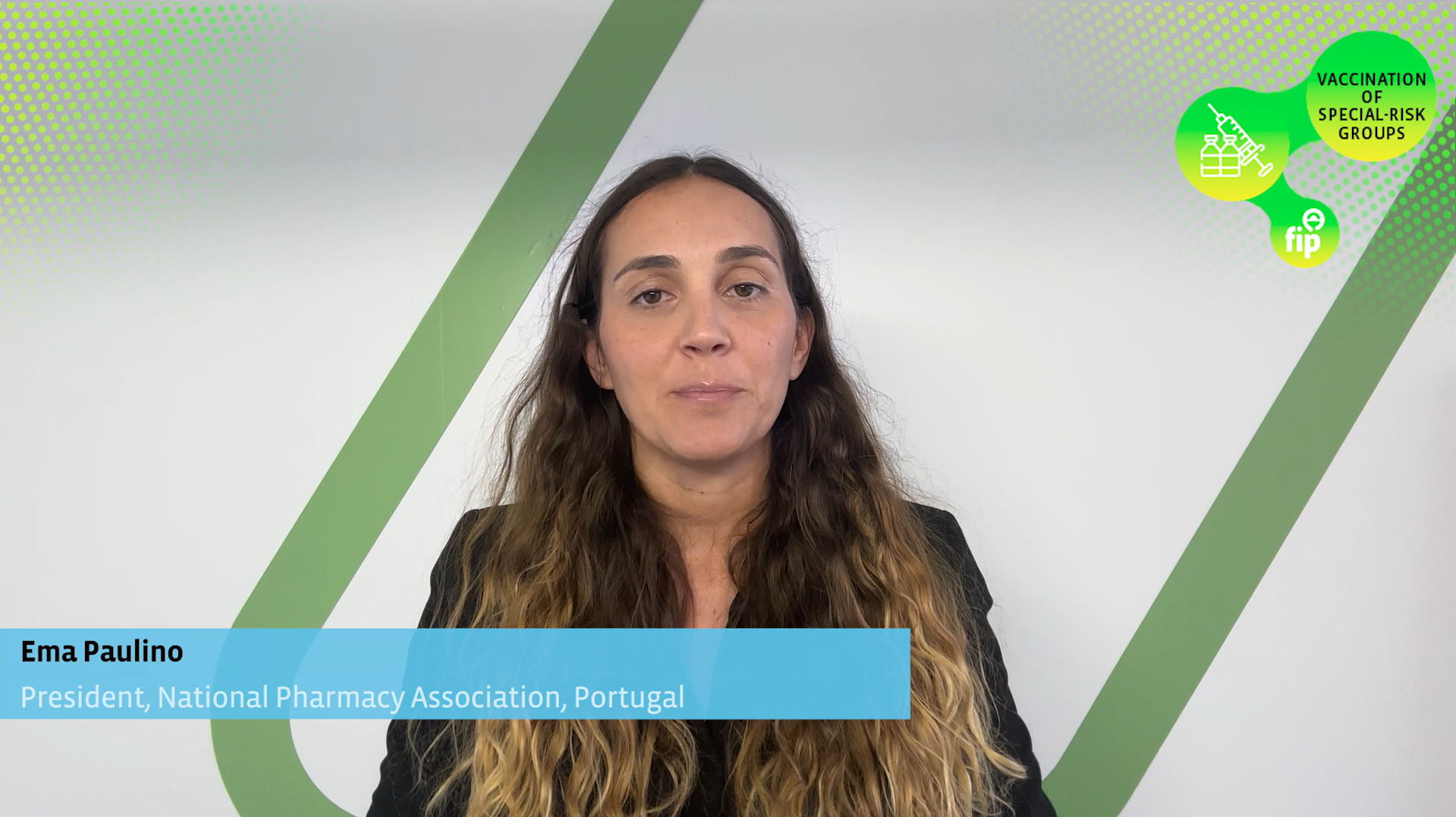
Chronic respiratory diseases
This video highlights the main benefits of vaccination, and which vaccines are recommended for people living with chronic respiratory conditions.
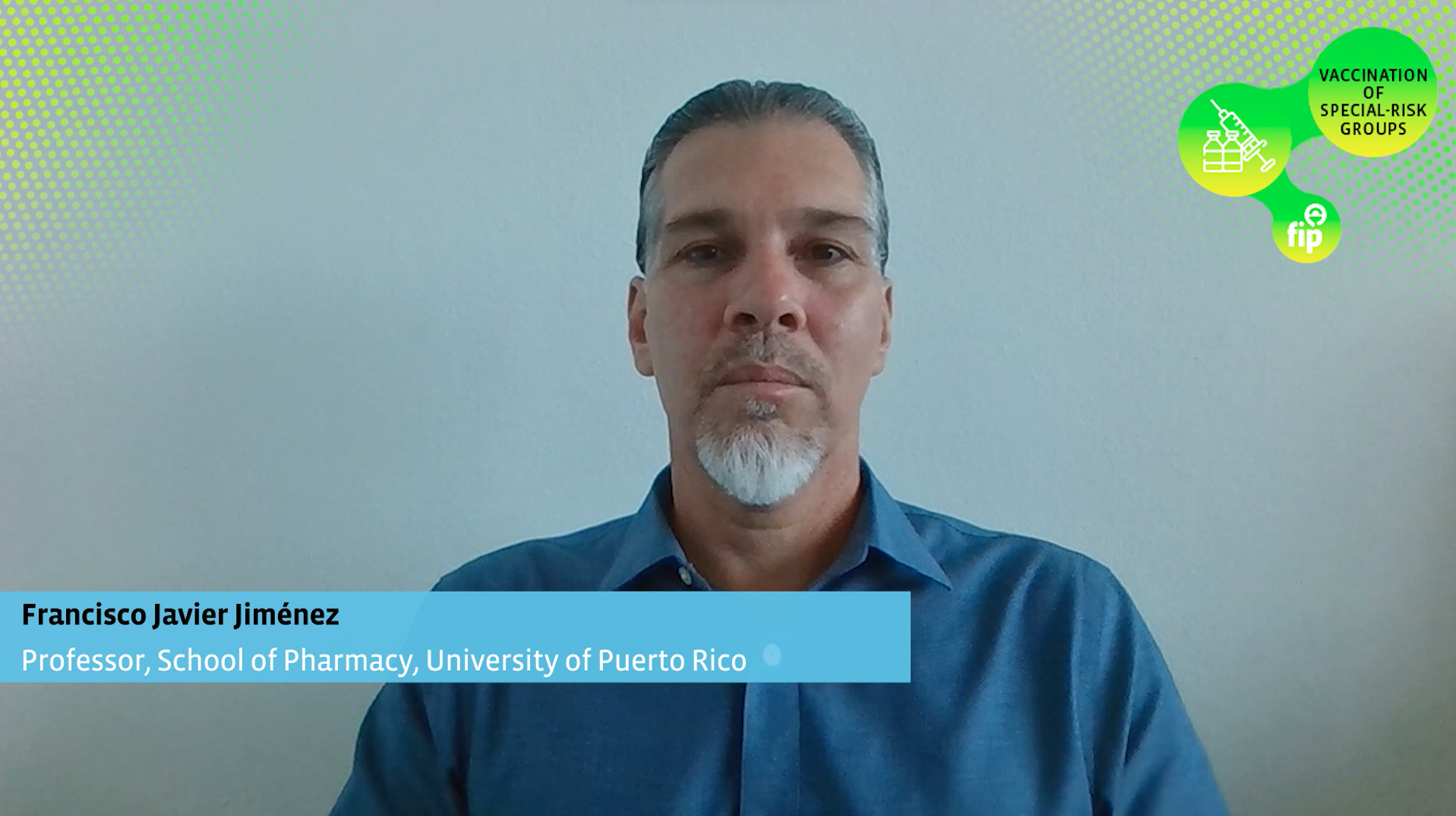
Cardiovascular diseases
This video highlights the main benefits of vaccination, and which vaccines are recommended for people living with cardiovascular diseases.
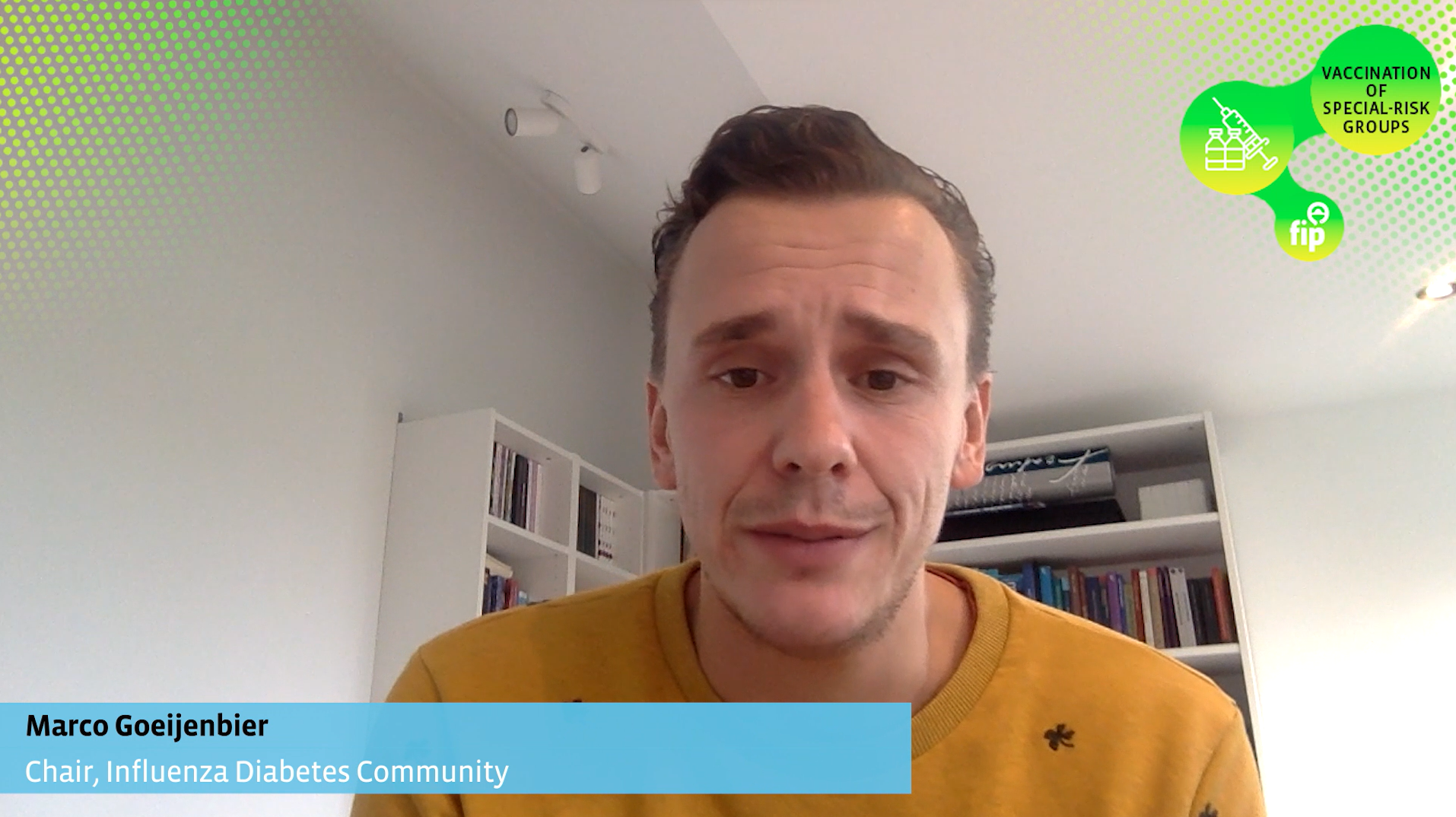
Diabetes
This video highlights the main benefits of vaccination, and which vaccines are recommended for people living with diabetes.
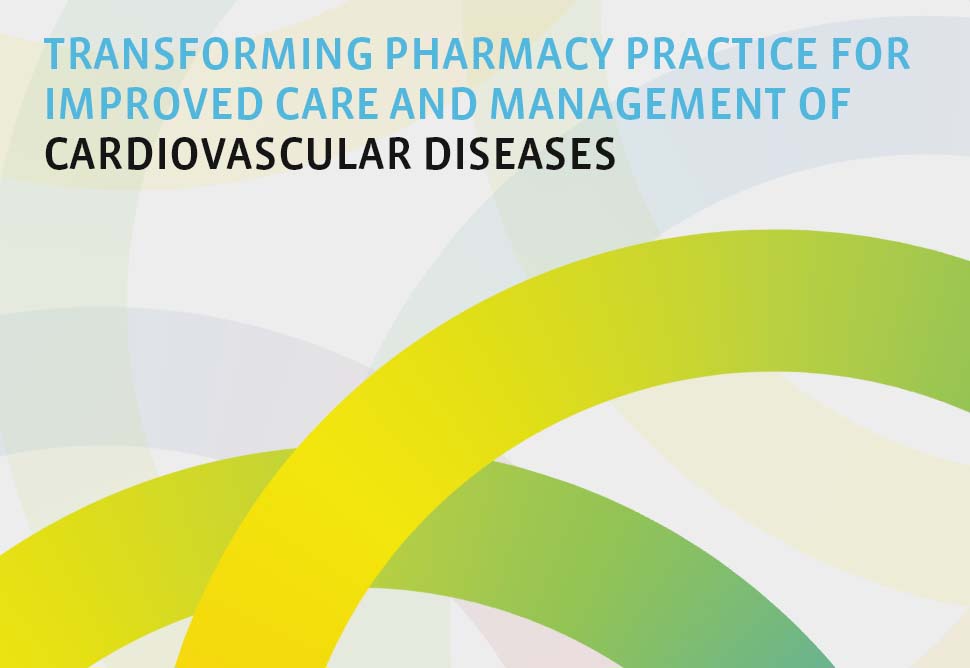
Transforming pharmacy practice for improved care and management of cardiovascular diseases
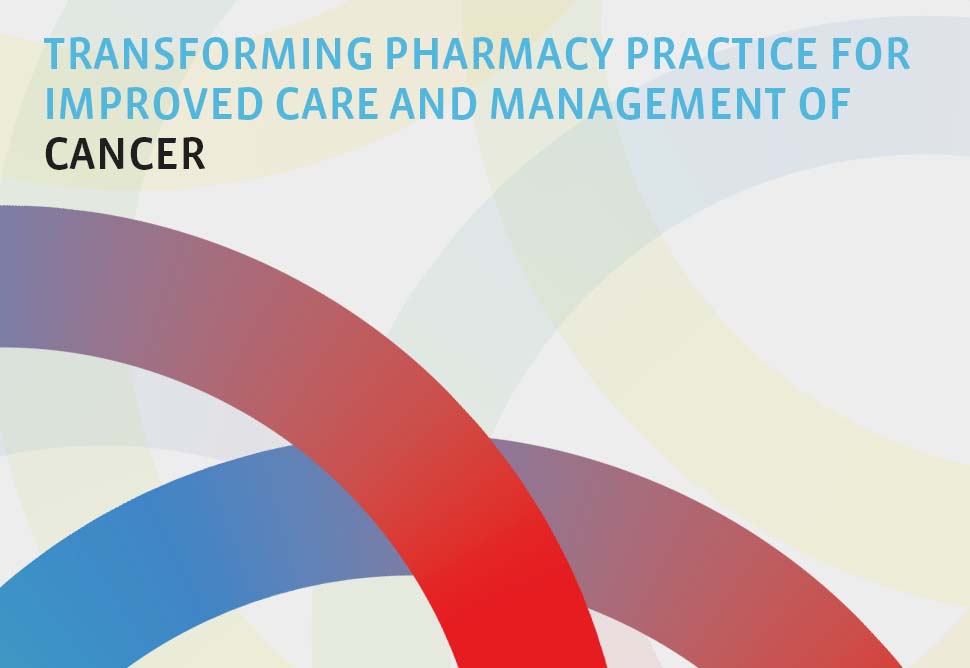
Transforming pharmacy practice for improved care and management of cancer
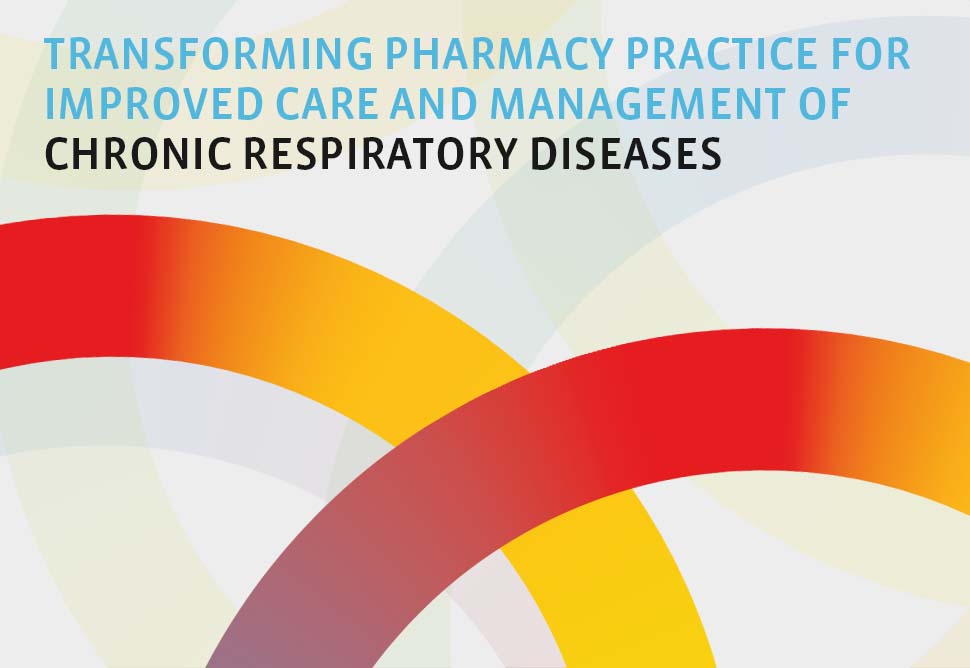
Transforming pharmacy practice for improved care and management of chronic respiratory diseases
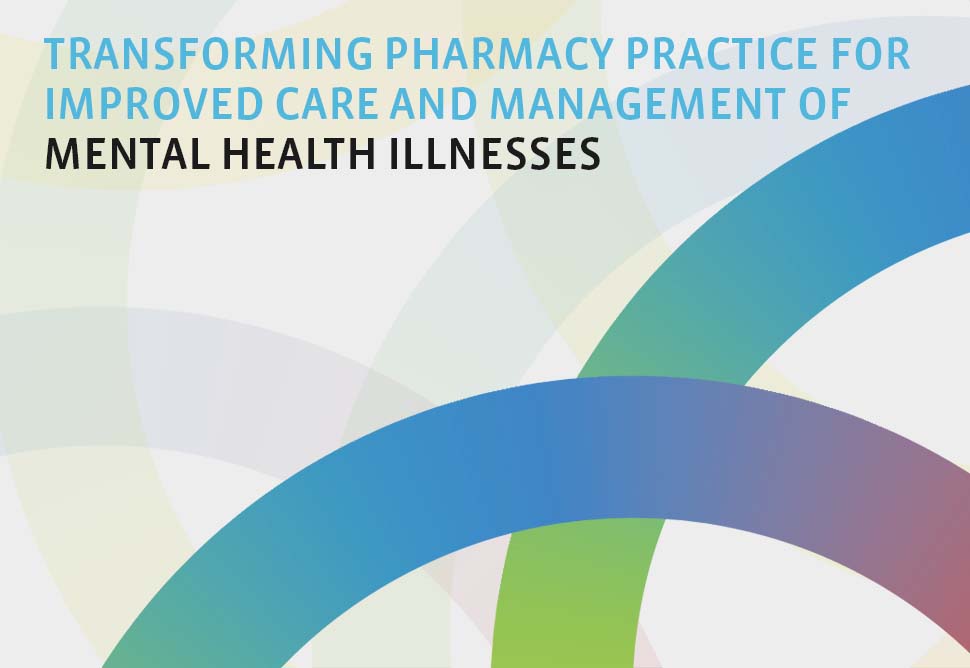
Transforming pharmacy practice for improved care and management of mental health illnesses
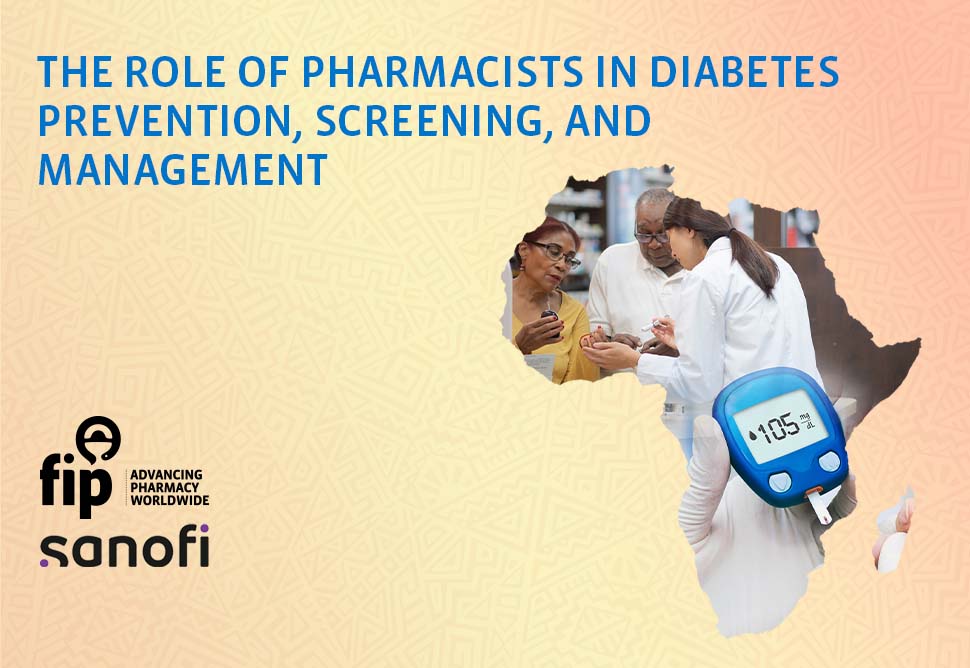
The role of pharmacists in diabetes prevention, screening, and management (French translation)
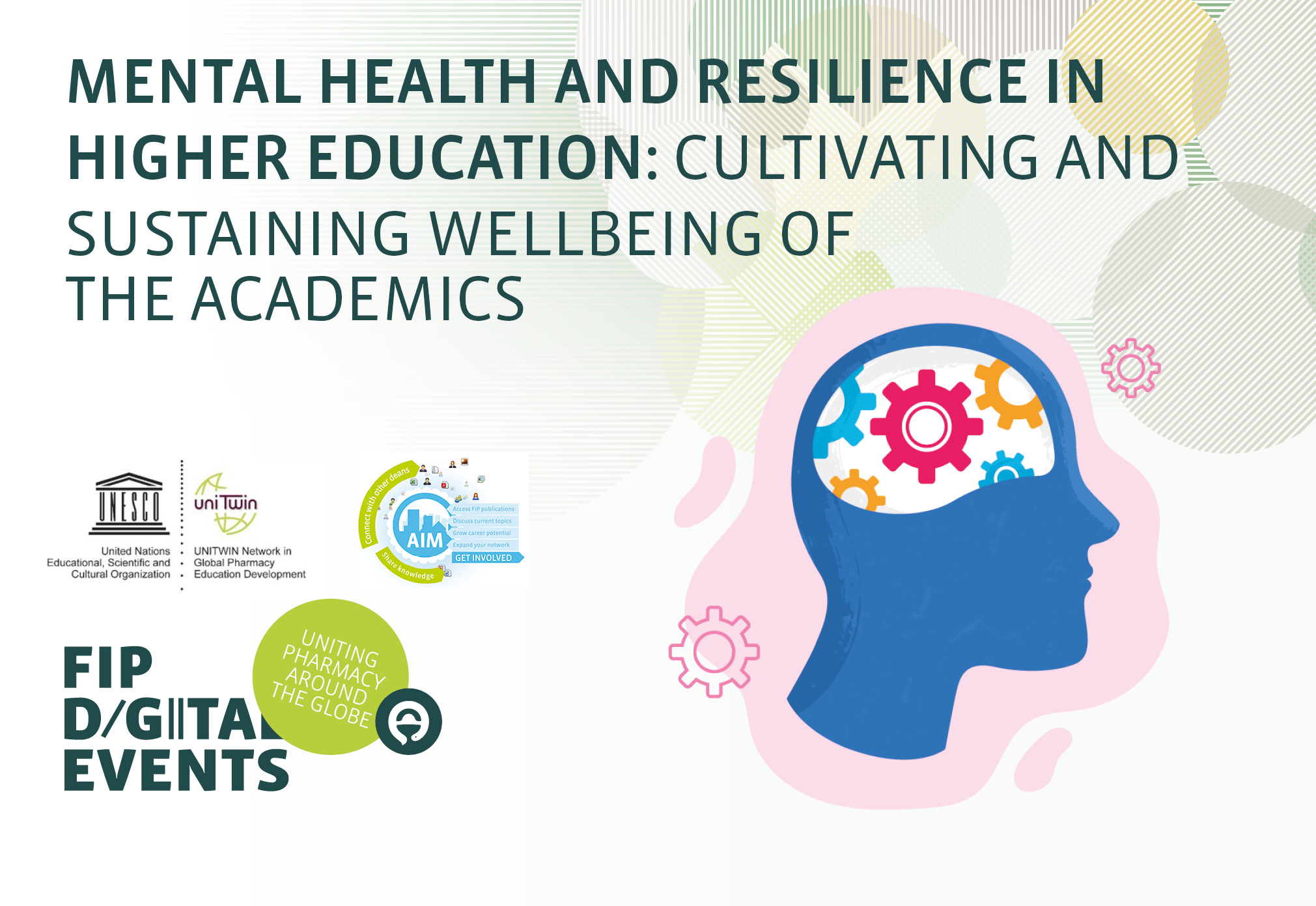
Mental health and resilience in higher education: Cultivating and sustaining wellbeing of the academics
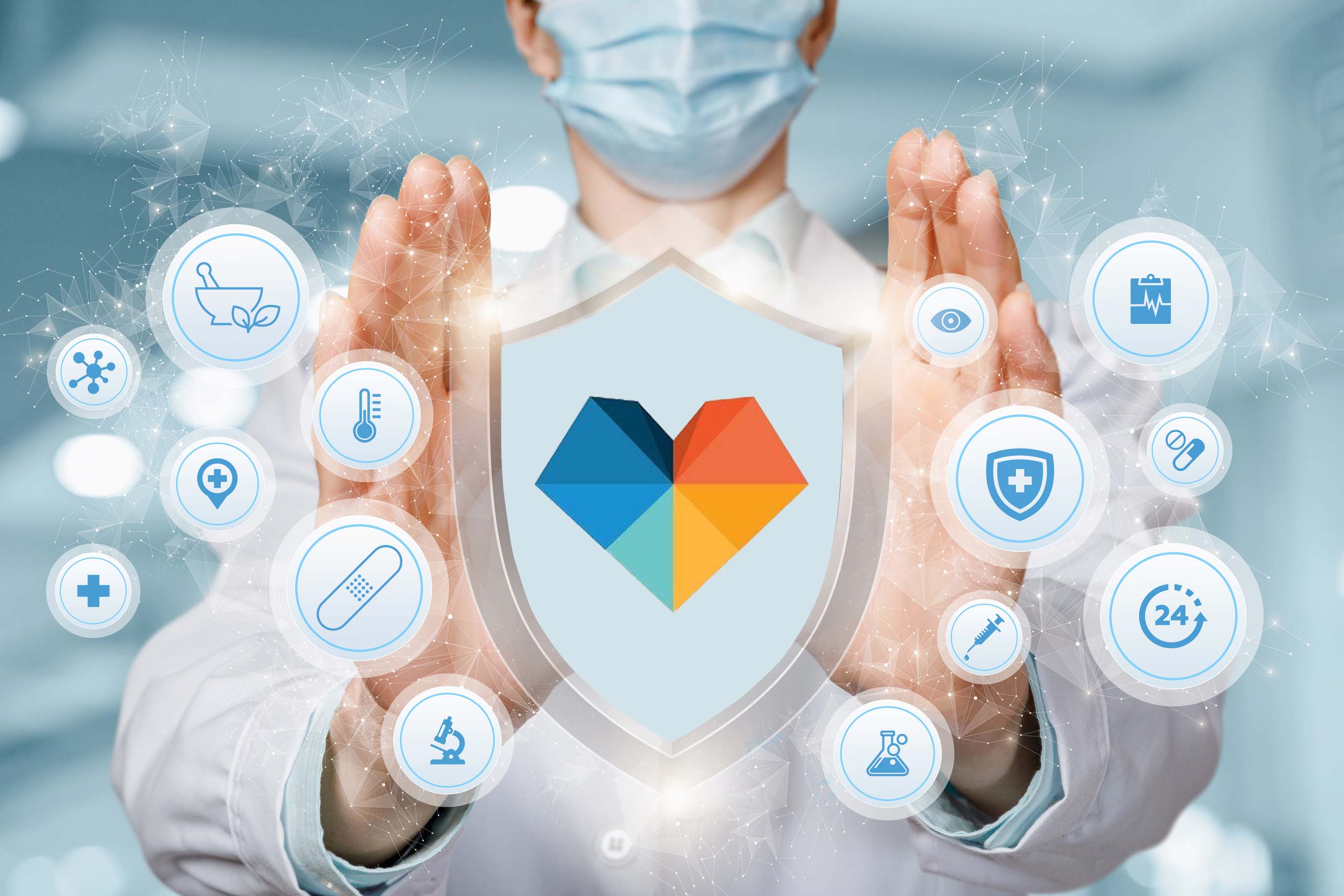
FIP Global Summit on Primary Health Care: Pharmacists transforming vision into actions
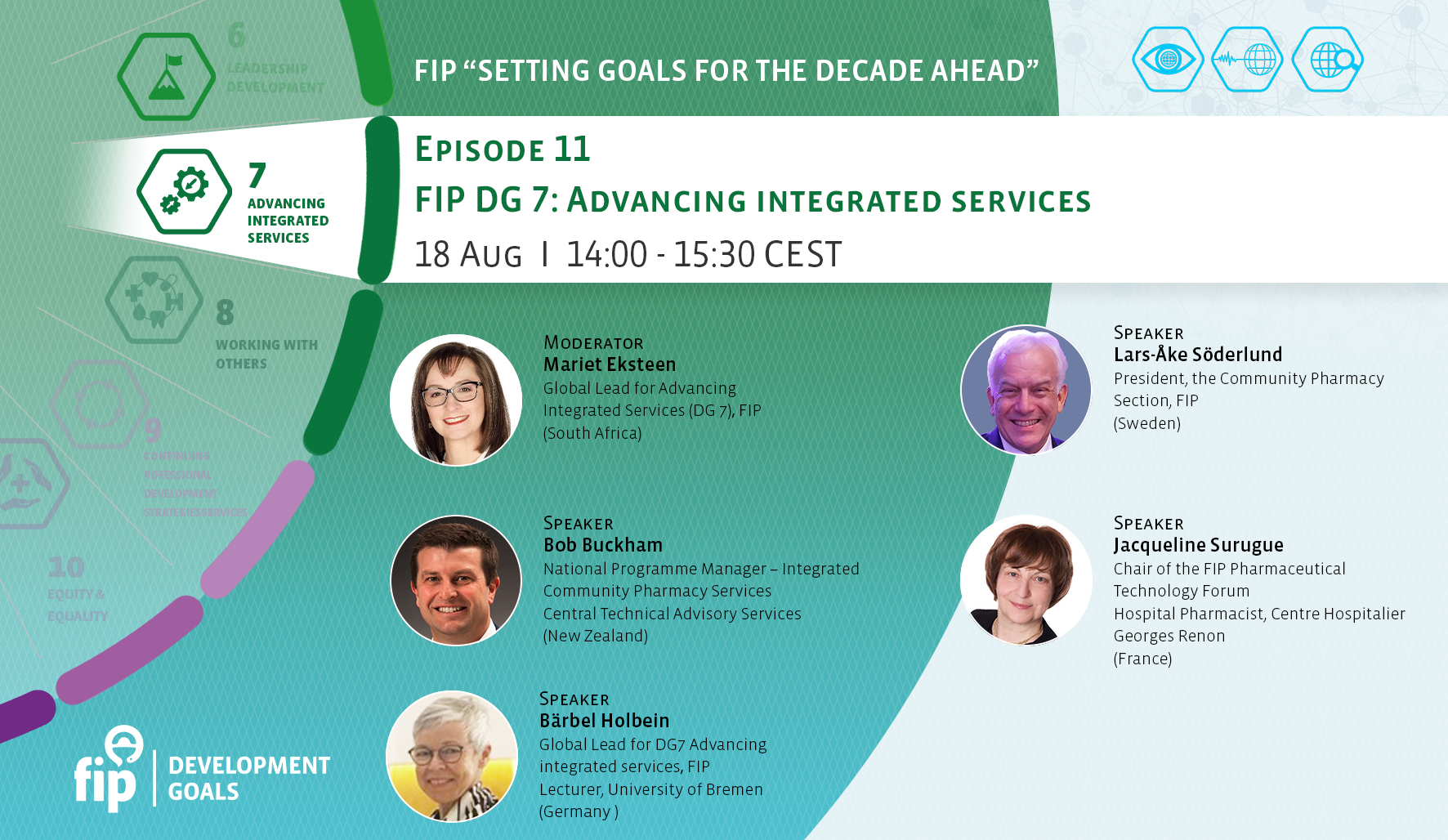
FIP “Setting goals for the decade ahead” | Episode 11 | FIP DG 7: Advancing integrated services
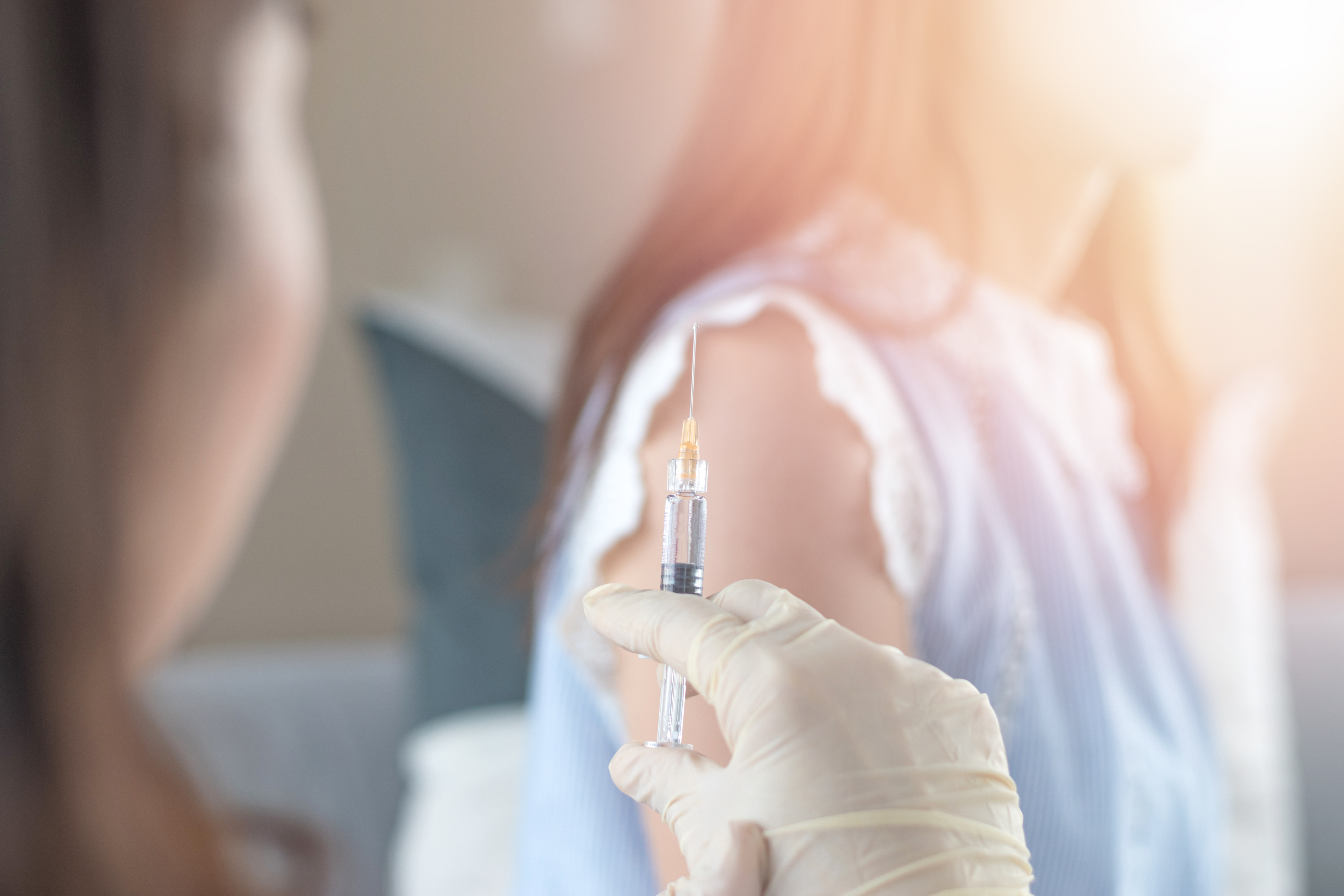
Global immunization initiatives: Implementing lifelong learning to address mass vaccination

Global Immunization Initiatives: Implementing Lifelong Learning to Address Mass Vaccination
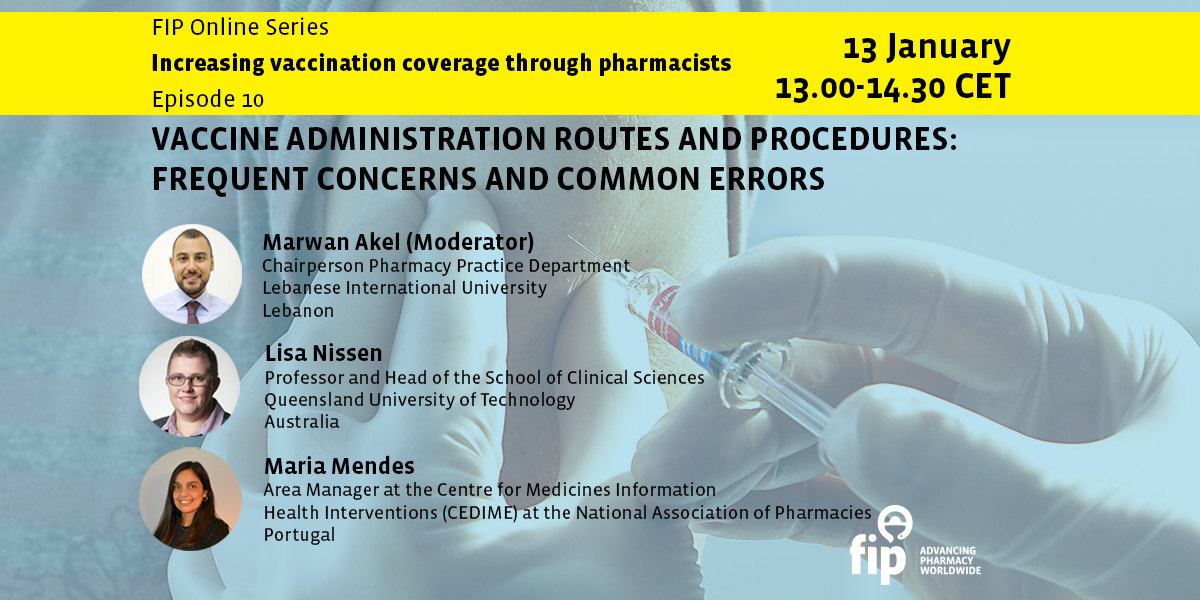
Vaccine administration routes and procedures: frequent concerns and common errors
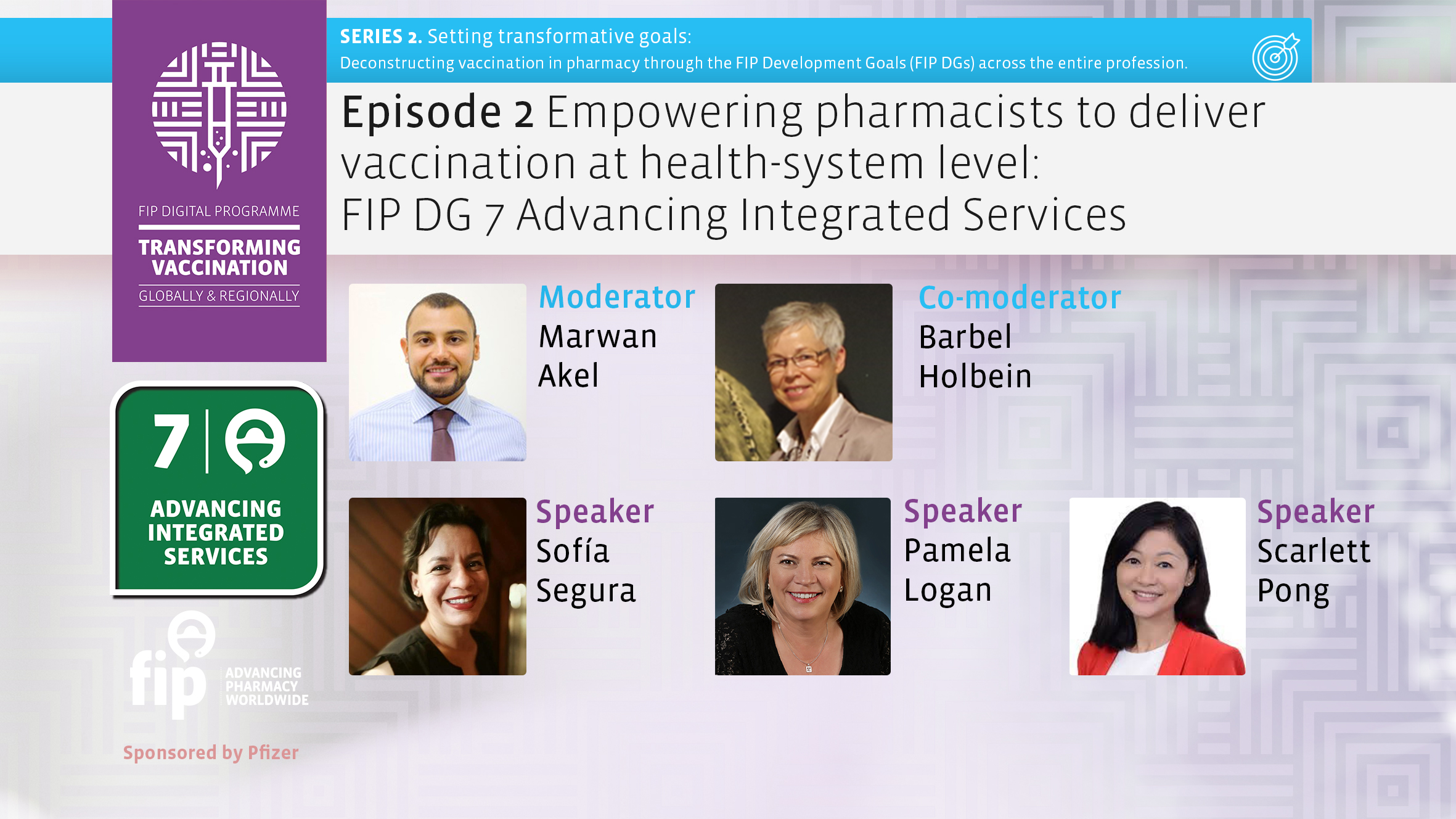
Empowering pharmacists to deliver vaccination at the health-system level: FIP DG 7 Advancing Integrated Services

Empowering pharmacists to deliver vaccination at the health-system level: FIP DG 7 Advancing Integrated Services
The following FIP programmes of work and structures support the implementation of this Goal:
FIP Board of Pharmaceutical Practice and sections
Non-communicable Diseases Programme
